Special Report
25 Best College Towns in America

Published:
Last Updated:

High school graduates pursuing a college education have a glut of options when it comes to choosing a university. Prospective students consider the cost of tuition, school reputation, the scholarship of professors, success of alumni, personal considerations and many other factors.
But only some of what is learned in college occurs in the classroom — what the town or city has to offer is arguably one of the most important aspects of this all-important life choice.
What makes a college town appealing is obviously subjective. However, the best areas to be a college student should not be so different from the best areas for anyone else. While cities with massive student populations are certainly not necessarily the best college towns, a large body of college-enrolled residents also brings certain benefits for university students.
For example, from the perspective of a college student, a high percentage of residents enrolled in higher education institutions likely means more opportunity for diverse experiences with peers. Further, the cities with relatively large student populations are more likely to have economies — services, amenities, and infrastructure — that directly serve individuals in that group.
To identify the best college towns in America, 24/7 Wall St. considered the 250 top cities based on our most recent annual analysis of the best cities to live. That analysis took into account a range of social, economic, and health factors. Of those areas, we identified the 25 cities with the highest postsecondary enrollment.
Click here to see the best college towns in America.
Click here to see our detailed findings and methodology.
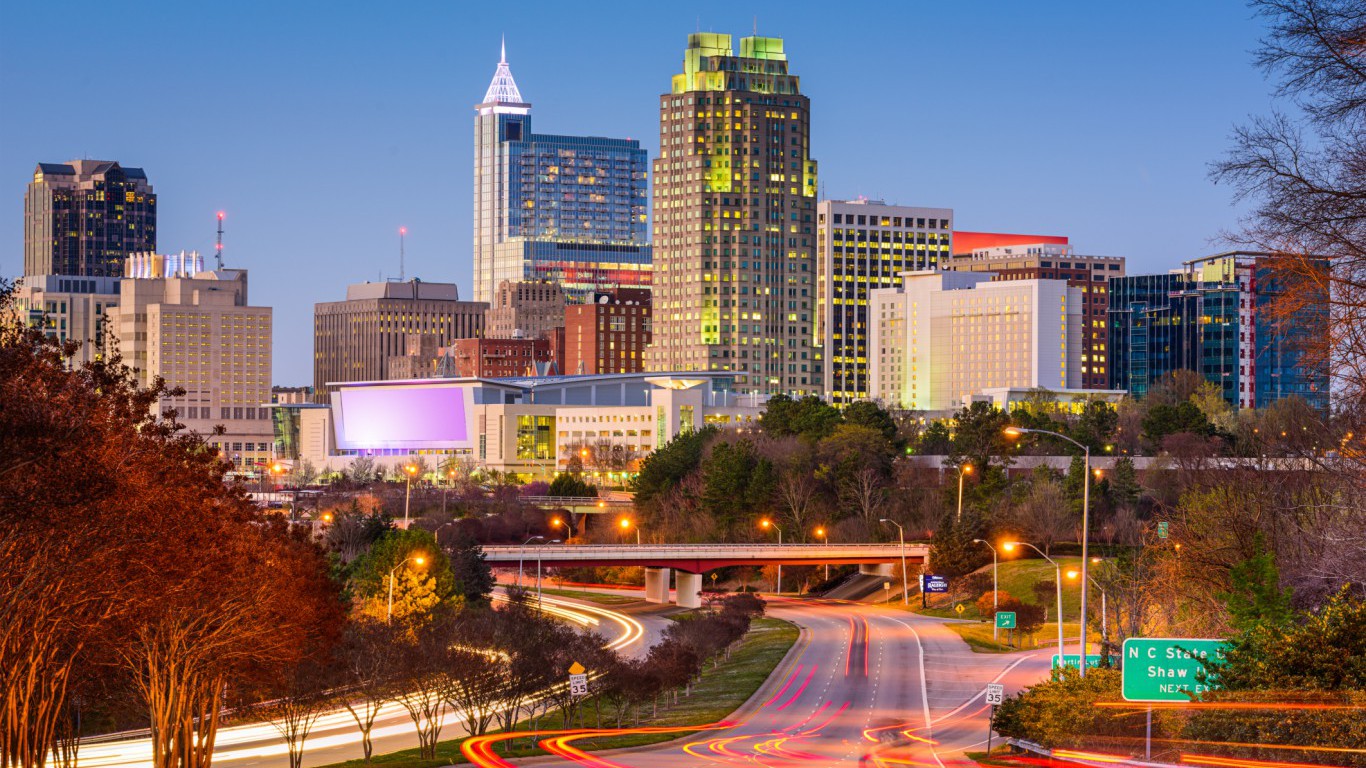
25. Raleigh, North Carolina
> College enrollment: 12.0%
> Adults with a bachelor’s degree: 49.2%
> No. of colleges and universities in surrounding county: 19
> Annual unemployment: 4.6%
> Bars per 100K: 13.5
[in-text-ad]
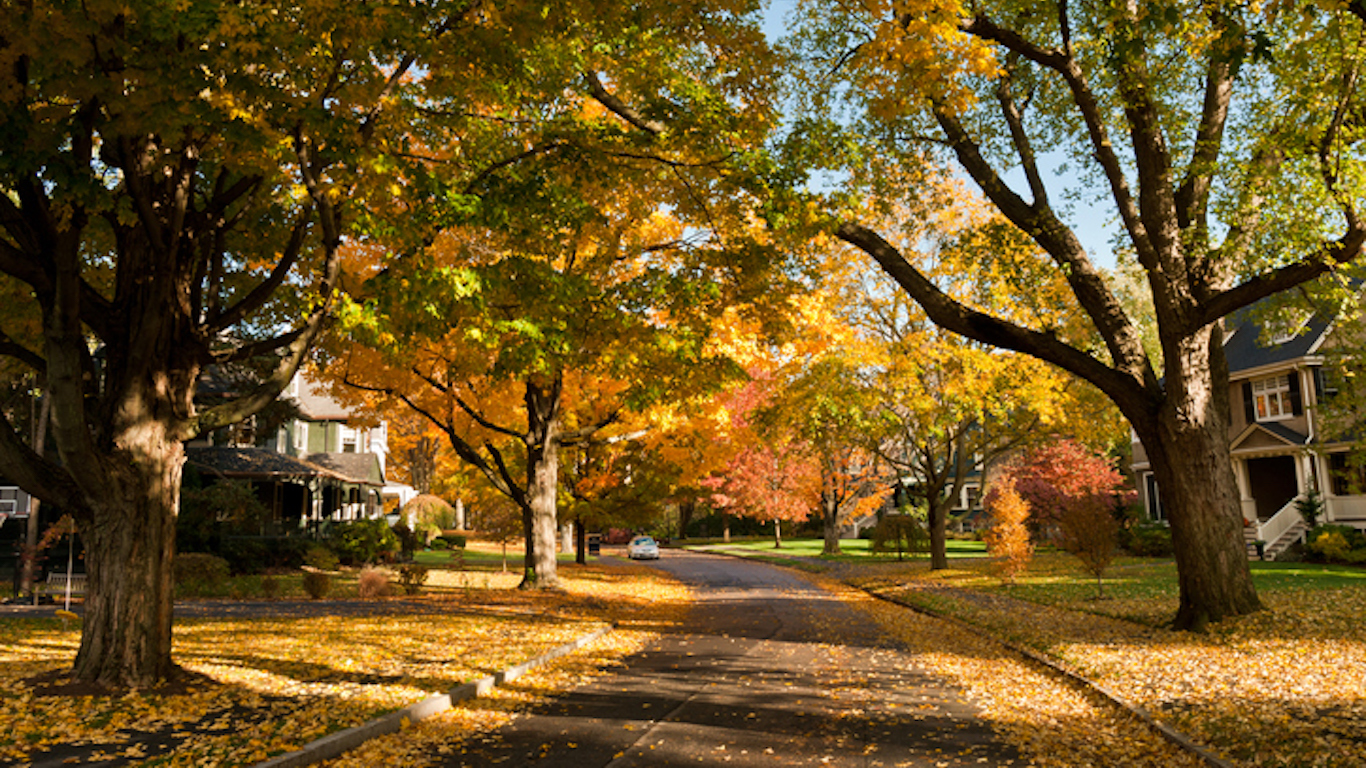
24. Newton, Massachusetts
> College enrollment: 12.2%
> Adults with a bachelor’s degree: 76.6%
> No. of colleges and universities in surrounding county: 44
> Annual unemployment: 3.7%
> Bars per 100K: N/A
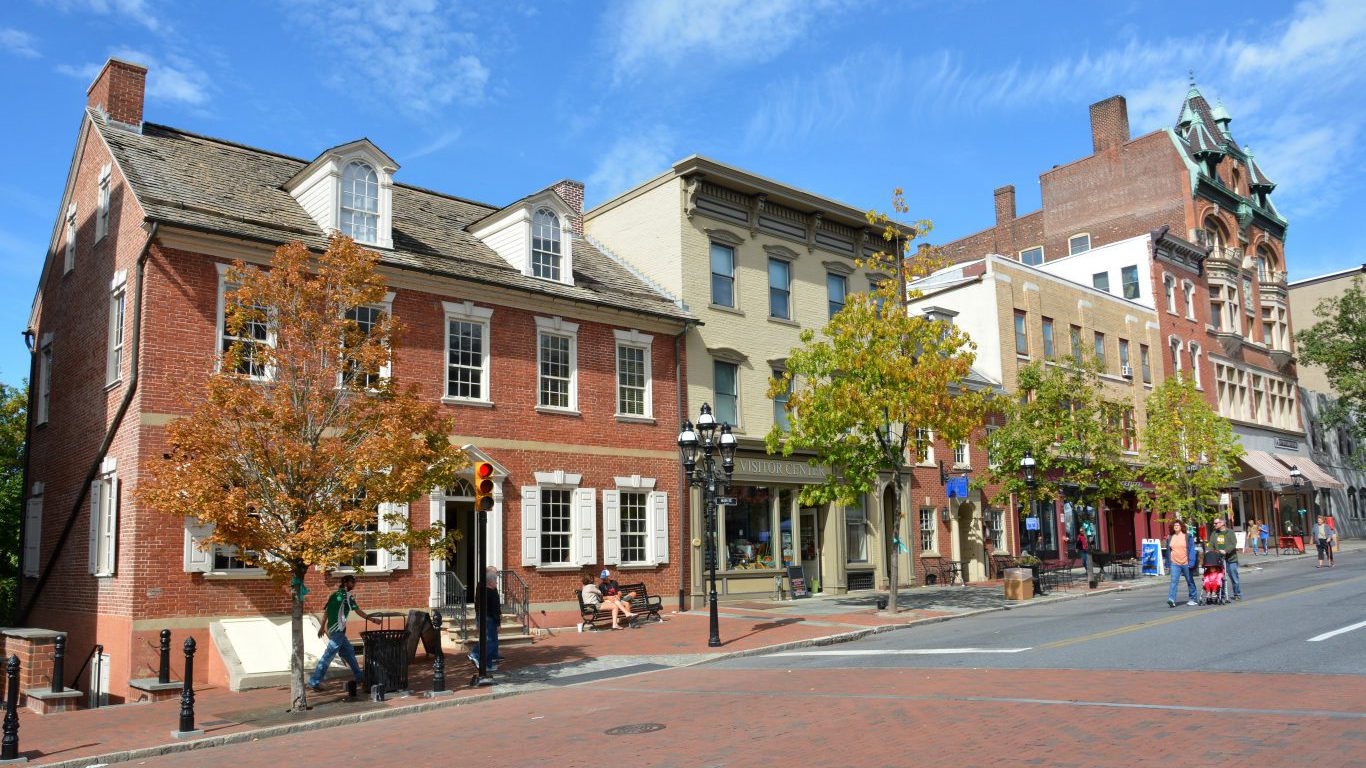
23. Bethlehem, Pennsylvania
> College enrollment: 13.0%
> Adults with a bachelor’s degree: 28.3%
> No. of colleges and universities in surrounding county: 14
> Annual unemployment: 5.8%
> Bars per 100K: 22.9

22. St. Charles, Missouri
> College enrollment: 13.1%
> Adults with a bachelor’s degree: 34.1%
> No. of colleges and universities in surrounding county: 10
> Annual unemployment: 4.0%
> Bars per 100K: 20.3
[in-text-ad-2]
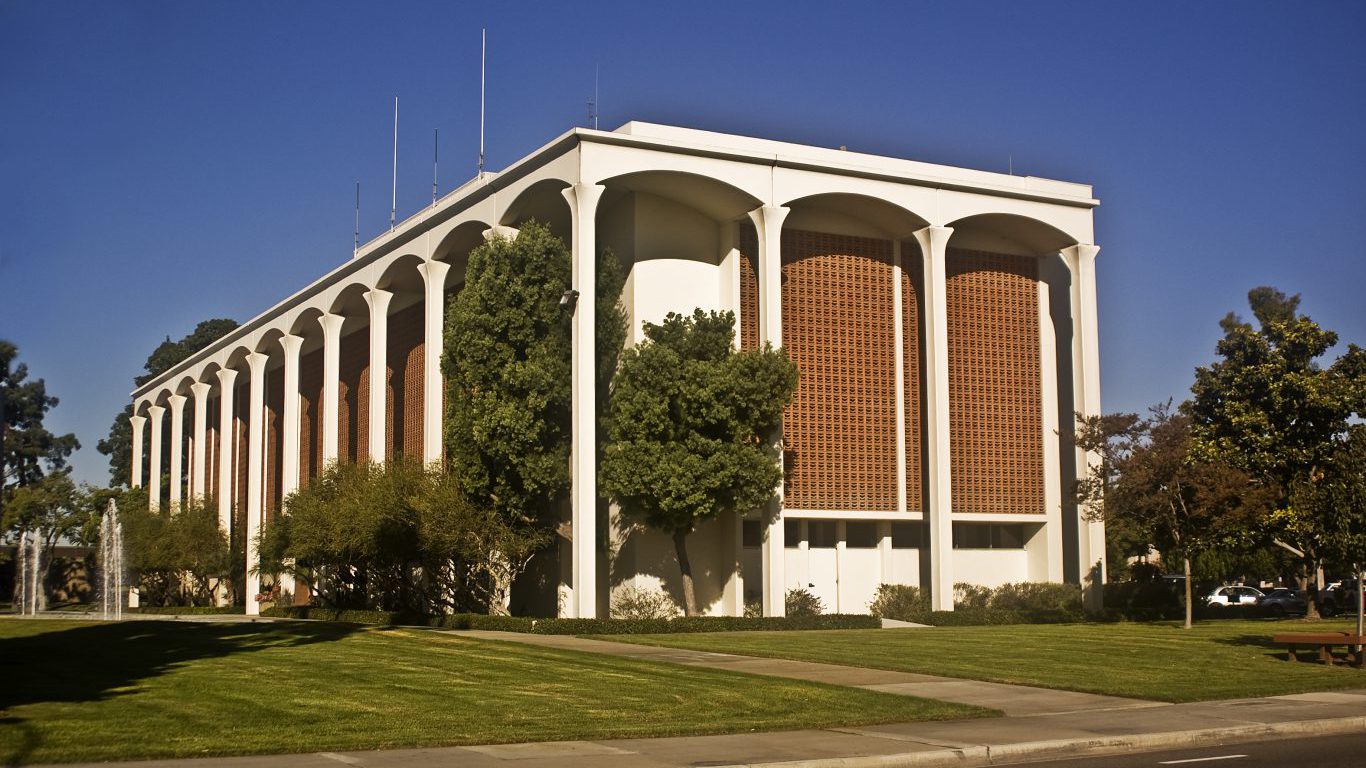
21. Fullerton, California
> College enrollment: 13.1%
> Adults with a bachelor’s degree: 40.3%
> No. of colleges and universities in surrounding county: 76
> Annual unemployment: 5.1%
> Bars per 100K: 9.9
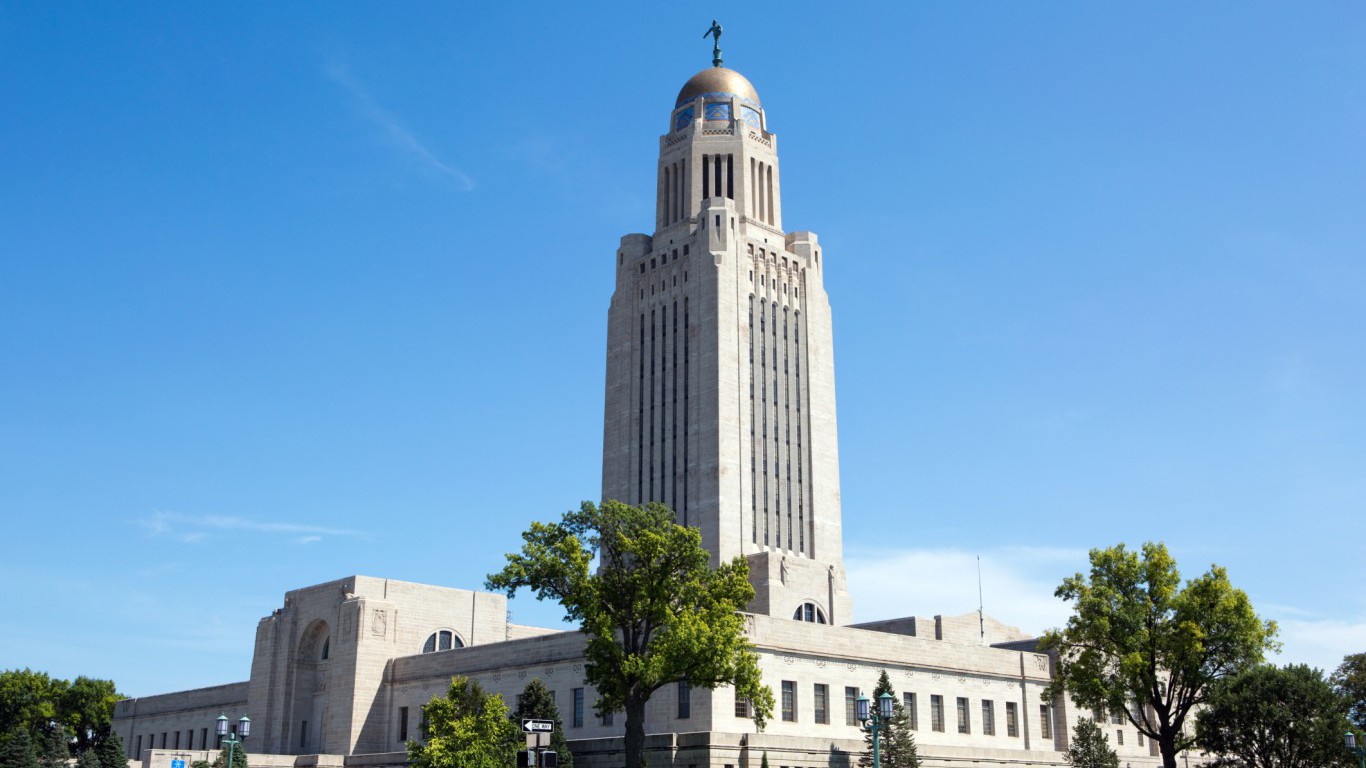
20. Lincoln, Nebraska
> College enrollment: 13.9%
> Adults with a bachelor’s degree: 37.1%
> No. of colleges and universities in surrounding county: 12
> Annual unemployment: 2.5%
> Bars per 100K: 21.6
[in-text-ad]

19. Orem, Utah
> College enrollment: 14.1%
> Adults with a bachelor’s degree: 35.4%
> No. of colleges and universities in surrounding county: 18
> Annual unemployment: 3.2%
> Bars per 100K: 2.1
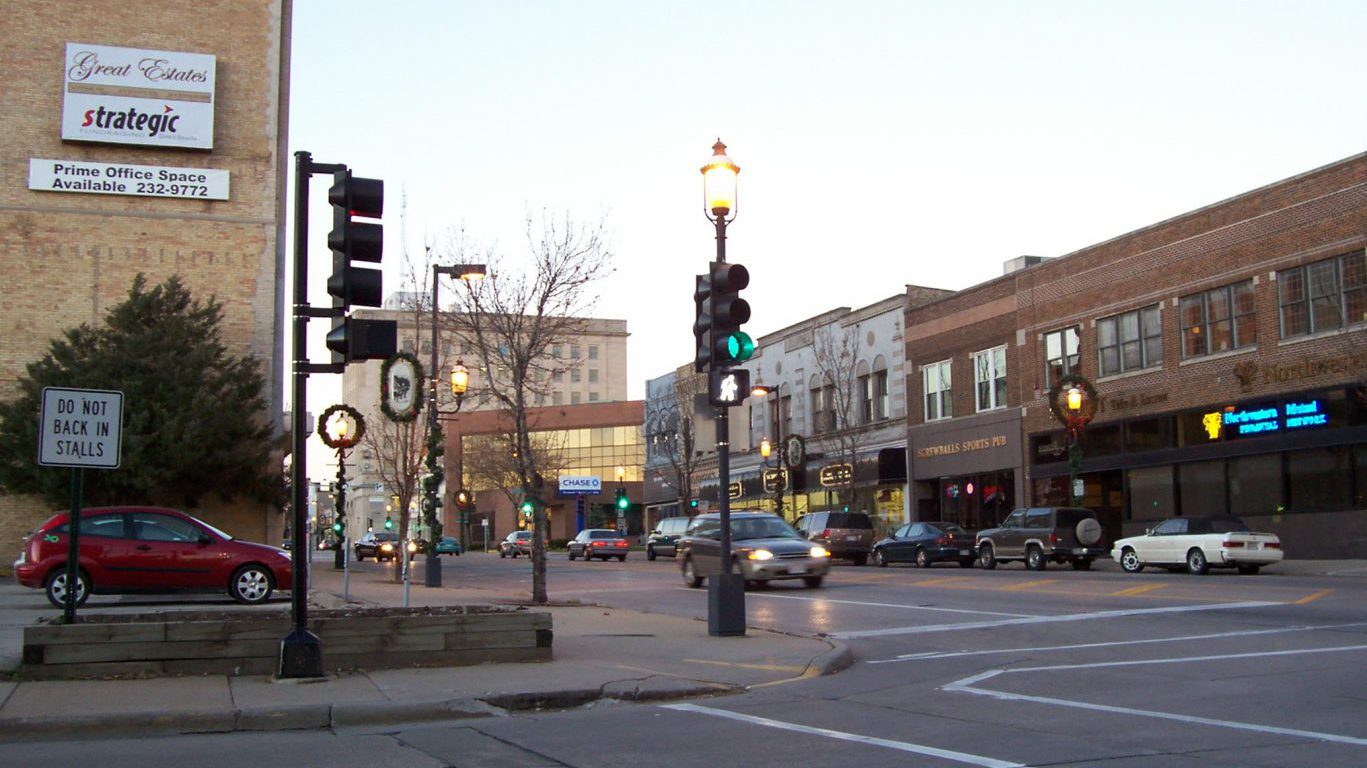
18. Oshkosh, Wisconsin
> College enrollment: 14.7%
> Adults with a bachelor’s degree: 22.7%
> No. of colleges and universities in surrounding county: 1
> Annual unemployment: 4.6%
> Bars per 100K: 75.1
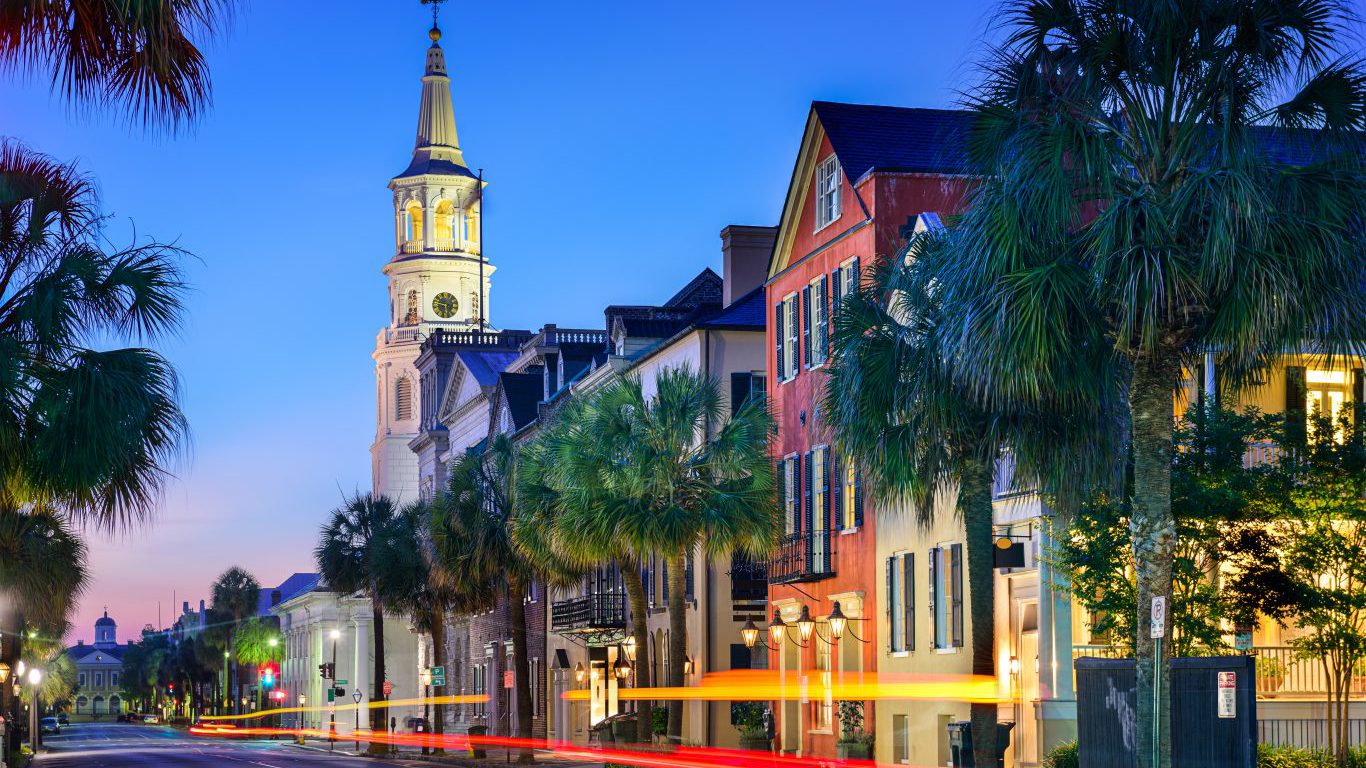
17. Charleston, South Carolina
> College enrollment: 14.9%
> Adults with a bachelor’s degree: 50.2%
> No. of colleges and universities in surrounding county: 14
> Annual unemployment: 4.4%
> Bars per 100K: 30.3
[in-text-ad-2]
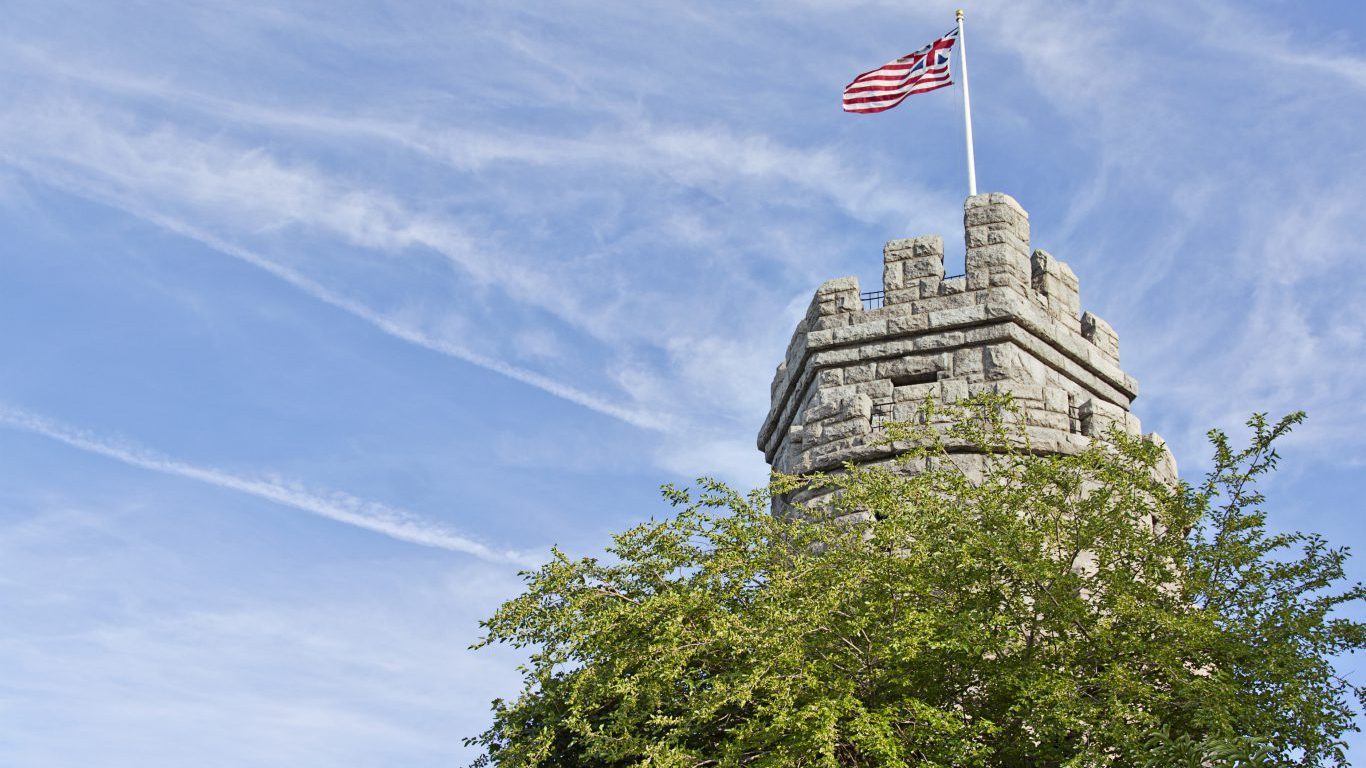
16. Somerville, Massachusetts
> College enrollment: 15.1%
> Adults with a bachelor’s degree: 60.1%
> No. of colleges and universities in surrounding county: 44
> Annual unemployment: 3.3%
> Bars per 100K: 17.4

15. Irvine, California
> College enrollment: 15.9%
> Adults with a bachelor’s degree: 69.1%
> No. of colleges and universities in surrounding county: 76
> Annual unemployment: 3.3%
> Bars per 100K: 0.8
[in-text-ad]
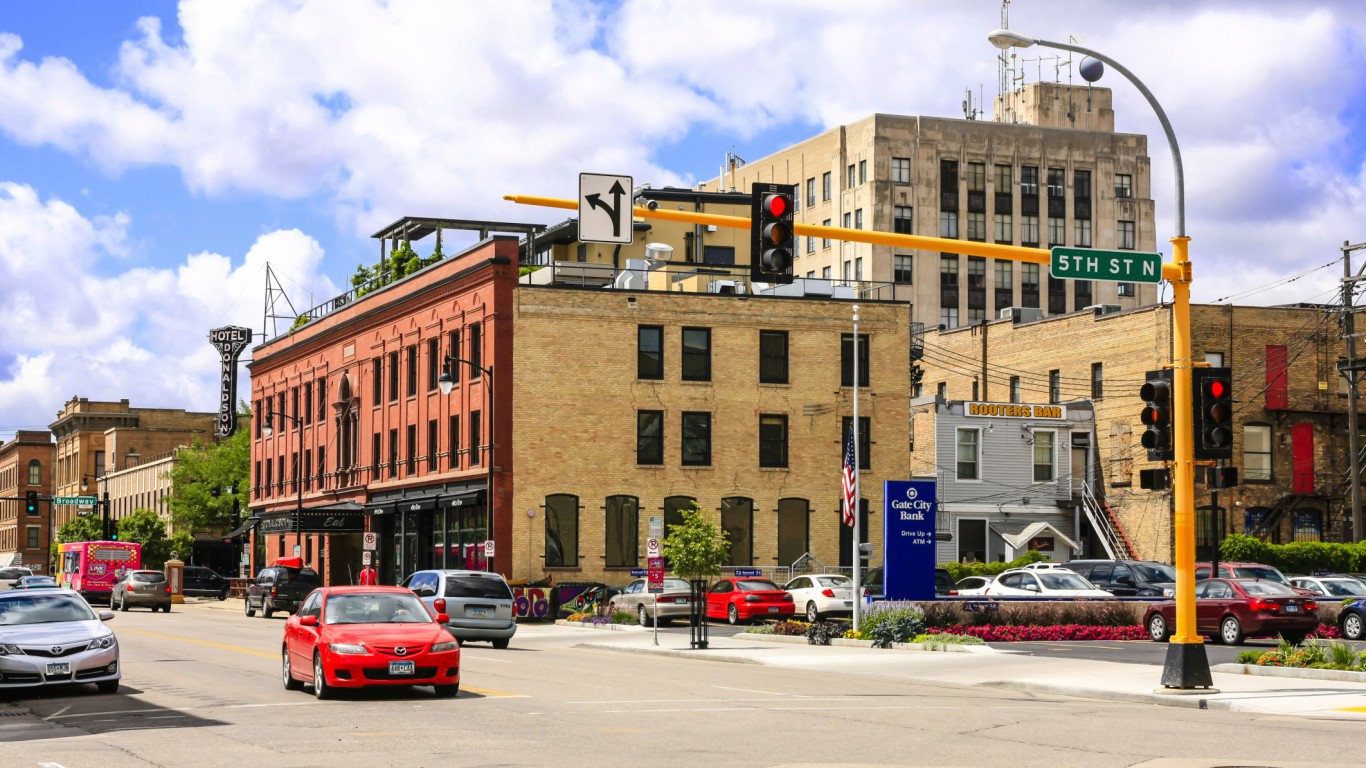
14. Fargo, North Dakota
> College enrollment: 17.2%
> Adults with a bachelor’s degree: 36.1%
> No. of colleges and universities in surrounding county: 7
> Annual unemployment: 2.2%
> Bars per 100K: 26.0
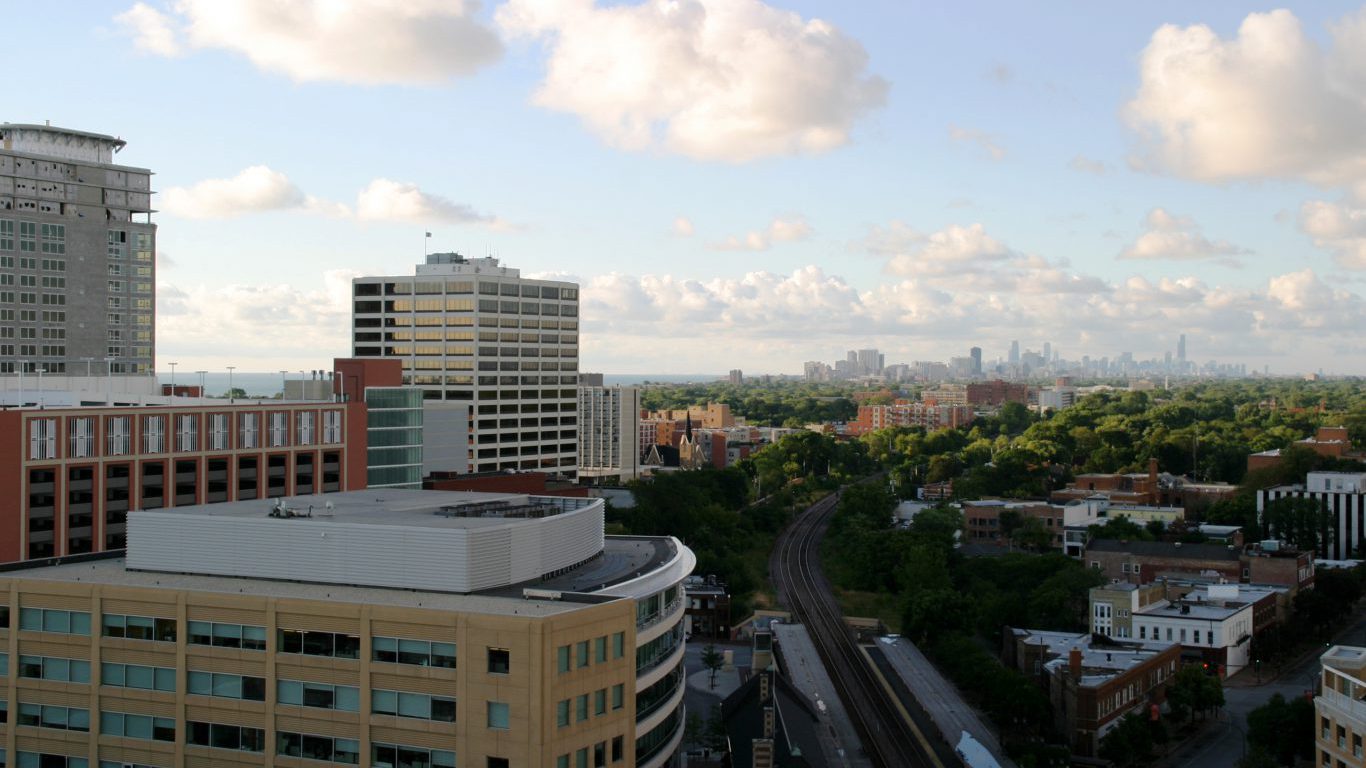
13. Evanston, Illinois
> College enrollment: 18.4%
> Adults with a bachelor’s degree: 65.8%
> No. of colleges and universities in surrounding county: 146
> Annual unemployment: 4.9%
> Bars per 100K: 2.6
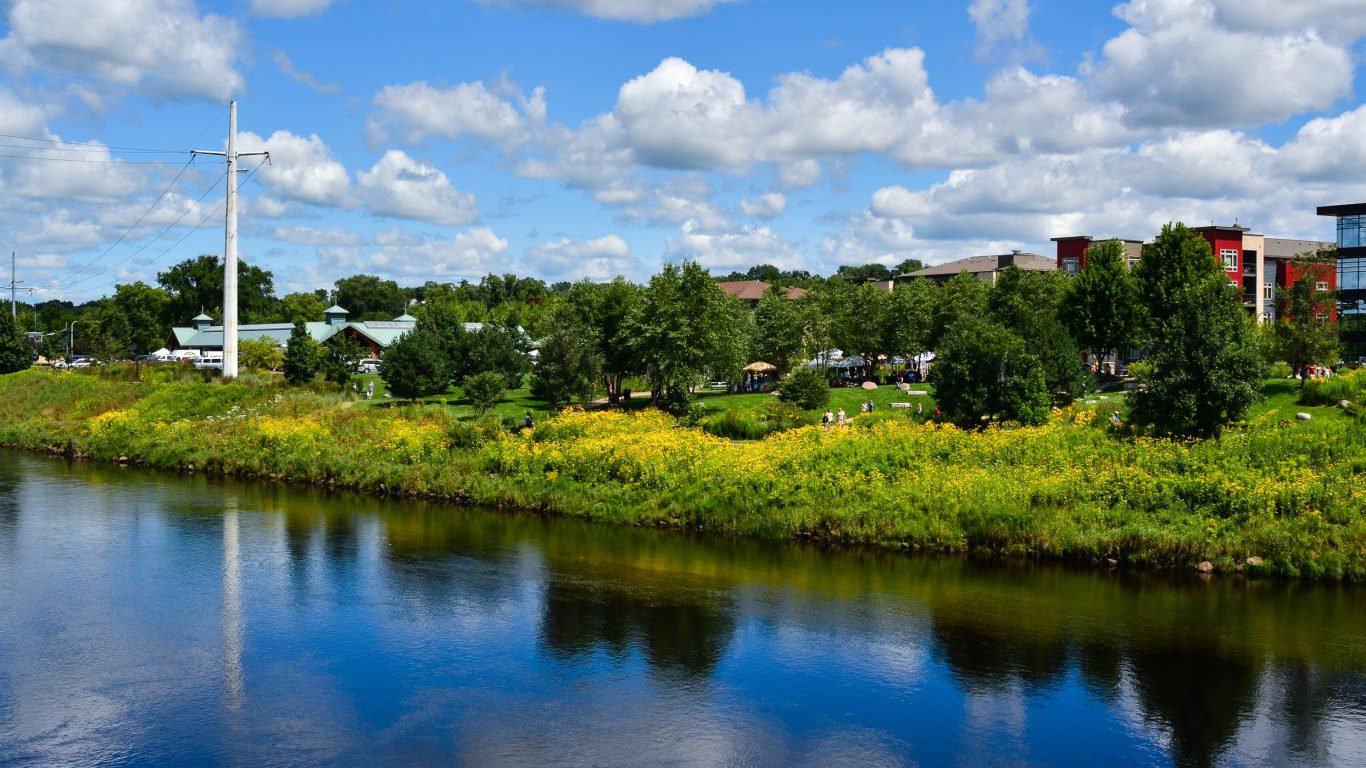
12. Eau Claire, Wisconsin
> College enrollment: 19.2%
> Adults with a bachelor’s degree: 33.4%
> No. of colleges and universities in surrounding county: 0
> Annual unemployment: 3.9%
> Bars per 100K: 60.8
[in-text-ad-2]
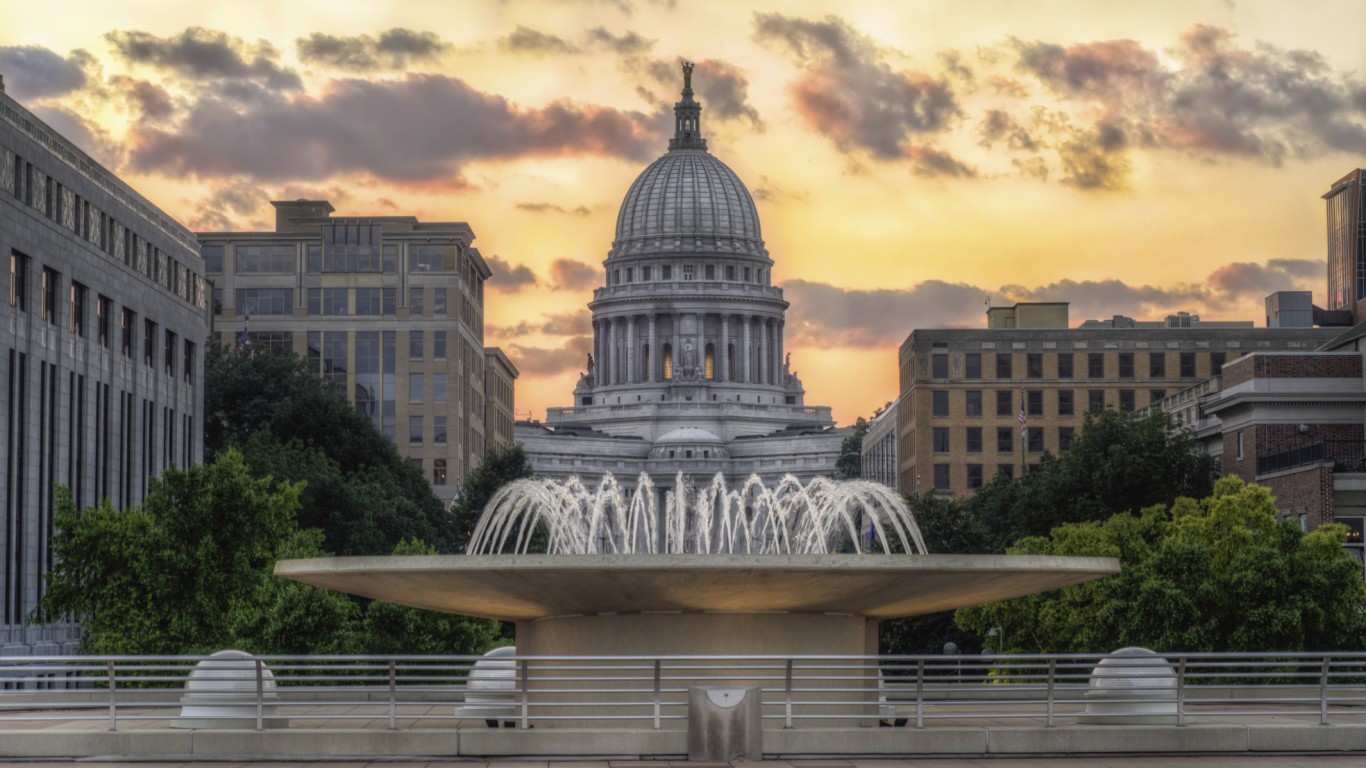
11. Madison, Wisconsin
> College enrollment: 19.9%
> Adults with a bachelor’s degree: 55.0%
> No. of colleges and universities in surrounding county: 16
> Annual unemployment: 3.1%
> Bars per 100K: 37.8
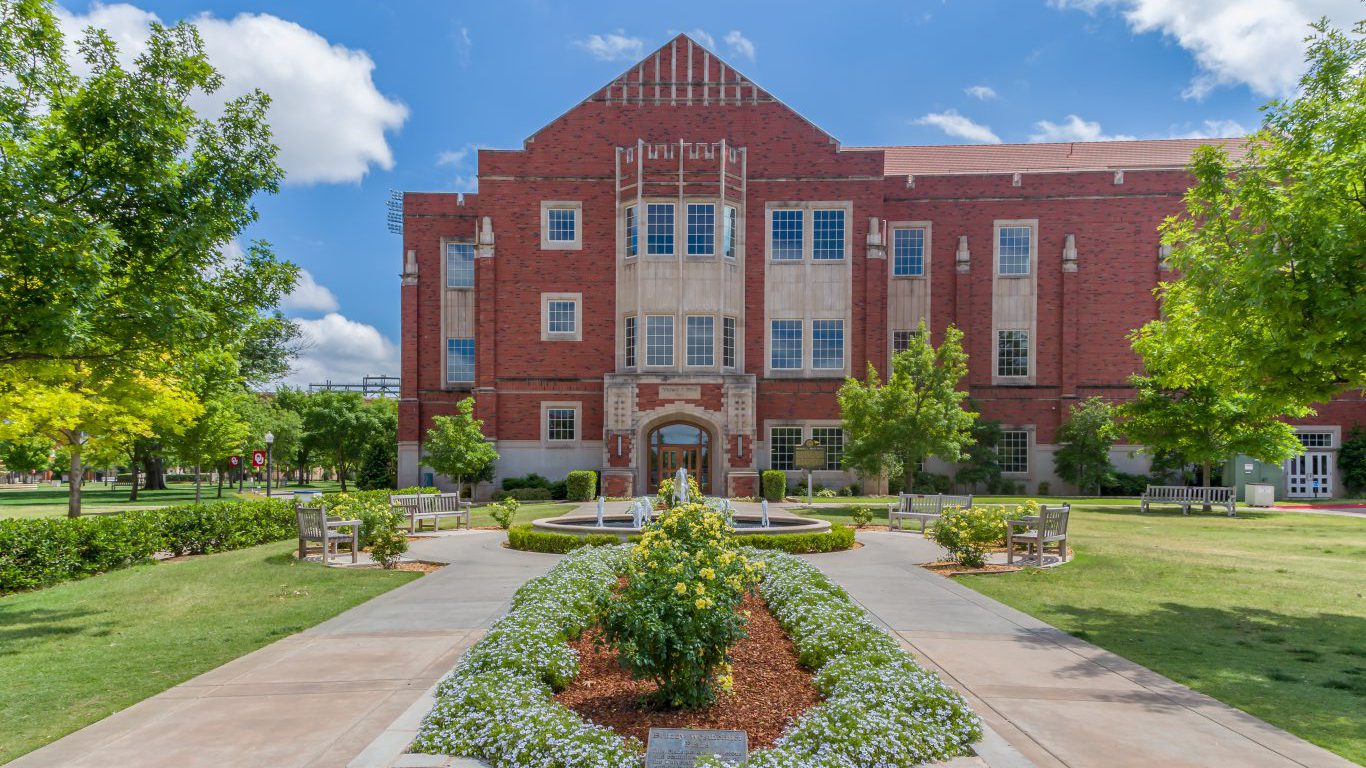
10. Norman, Oklahoma
> College enrollment: 21.3%
> Adults with a bachelor’s degree: 40.1%
> No. of colleges and universities in surrounding county: 8
> Annual unemployment: 3.1%
> Bars per 100K: 13.3
[in-text-ad]
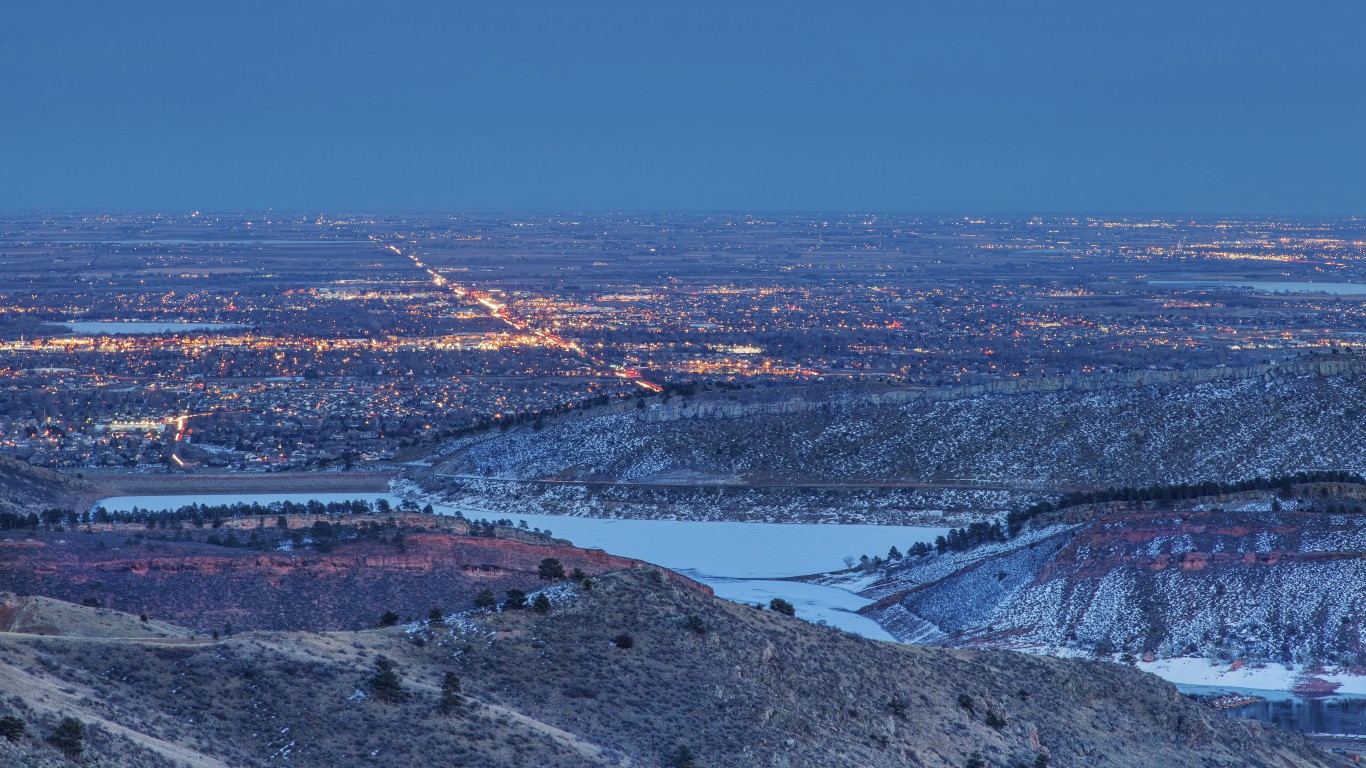
9. Fort Collins, Colorado
> College enrollment: 22.1%
> Adults with a bachelor’s degree: 54.1%
> No. of colleges and universities in surrounding county: 7
> Annual unemployment: 3.2%
> Bars per 100K: 18.6
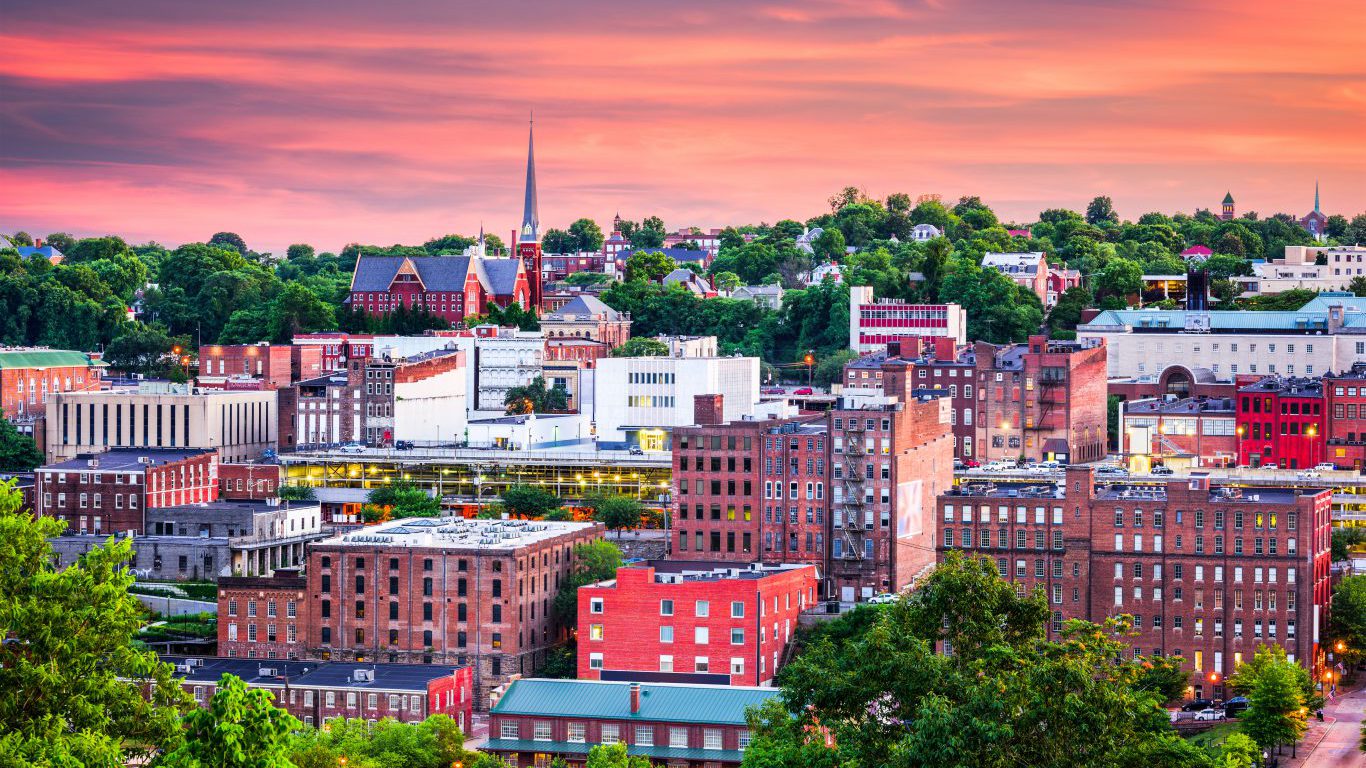
8. Lynchburg, Virginia
> College enrollment: 22.4%
> Adults with a bachelor’s degree: 33.0%
> No. of colleges and universities in surrounding county: 8
> Annual unemployment: 5.6%
> Bars per 100K: 1.3
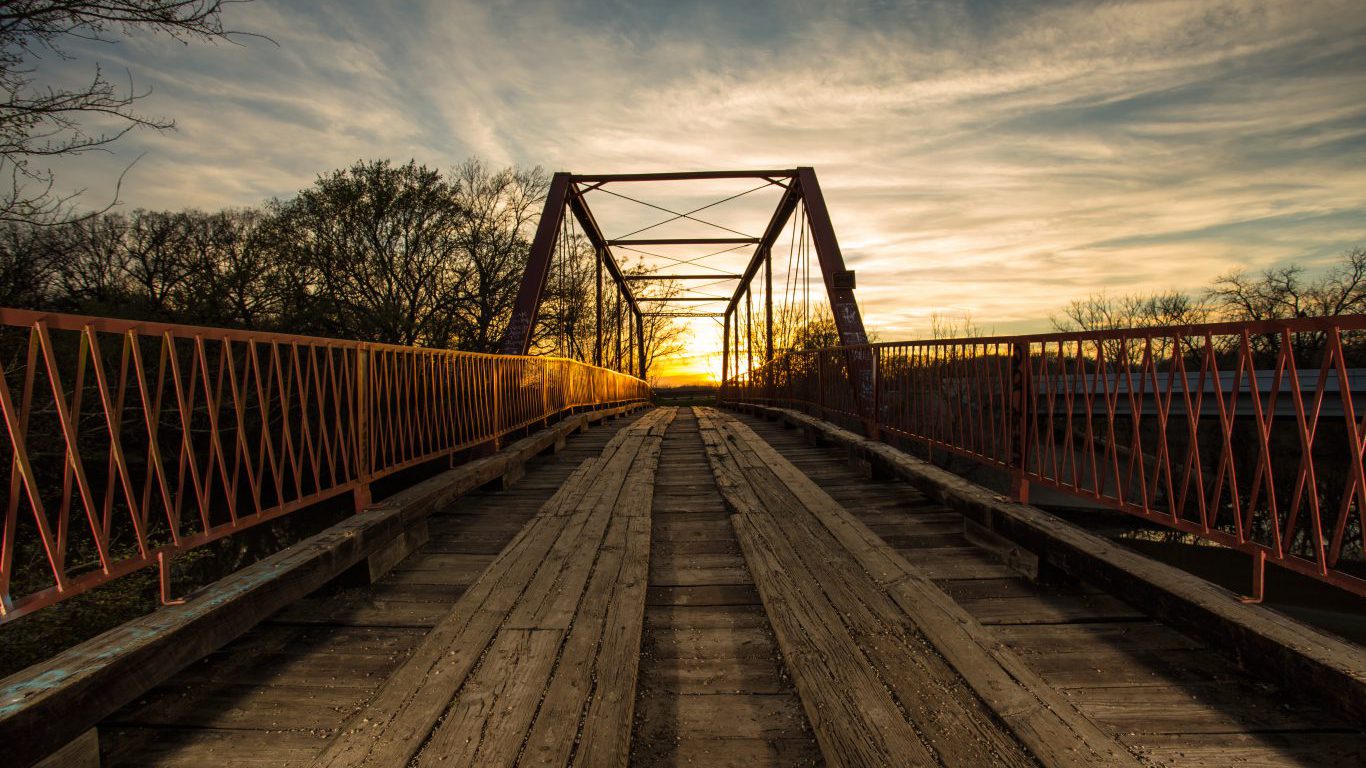
7. Denton, Texas
> College enrollment: 23.0%
> Adults with a bachelor’s degree: 35.8%
> No. of colleges and universities in surrounding county: 6
> Annual unemployment: 3.4%
> Bars per 100K: 16.0
[in-text-ad-2]
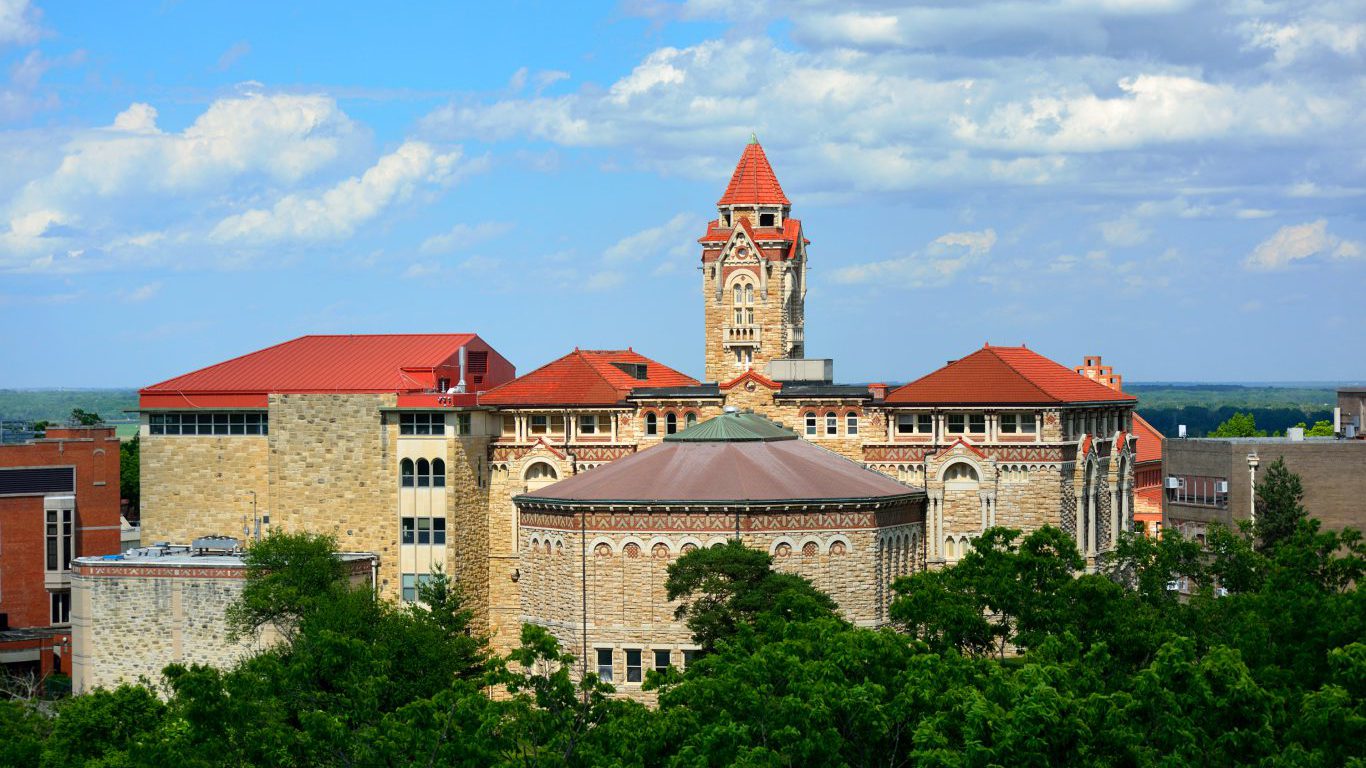
6. Lawrence, Kansas
> College enrollment: 27.7%
> Adults with a bachelor’s degree: 50.1%
> No. of colleges and universities in surrounding county: 6
> Annual unemployment: 3.7%
> Bars per 100K: 34.1
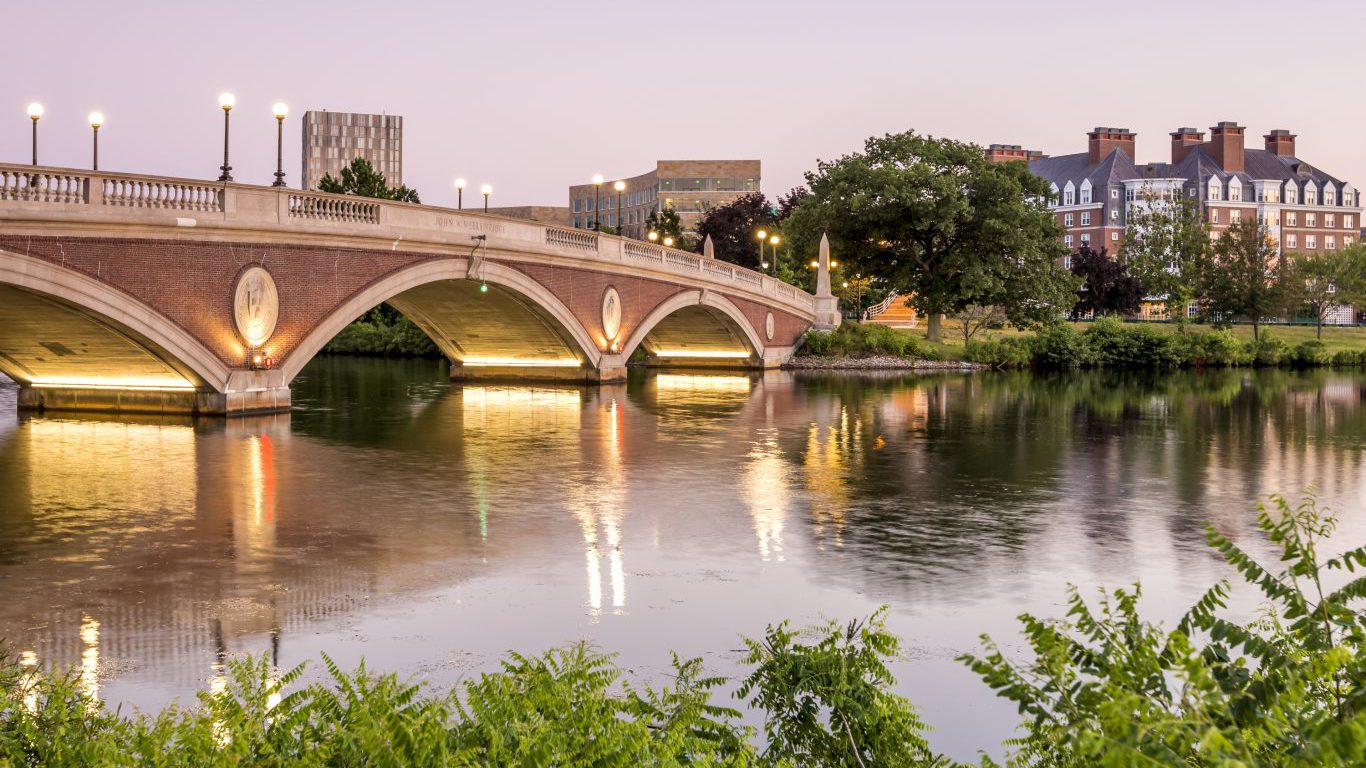
5. Cambridge, Massachusetts
> College enrollment: 27.7%
> Adults with a bachelor’s degree: 78.5%
> No. of colleges and universities in surrounding county: 44
> Annual unemployment: 3.2%
> Bars per 100K: 14.5
[in-text-ad]
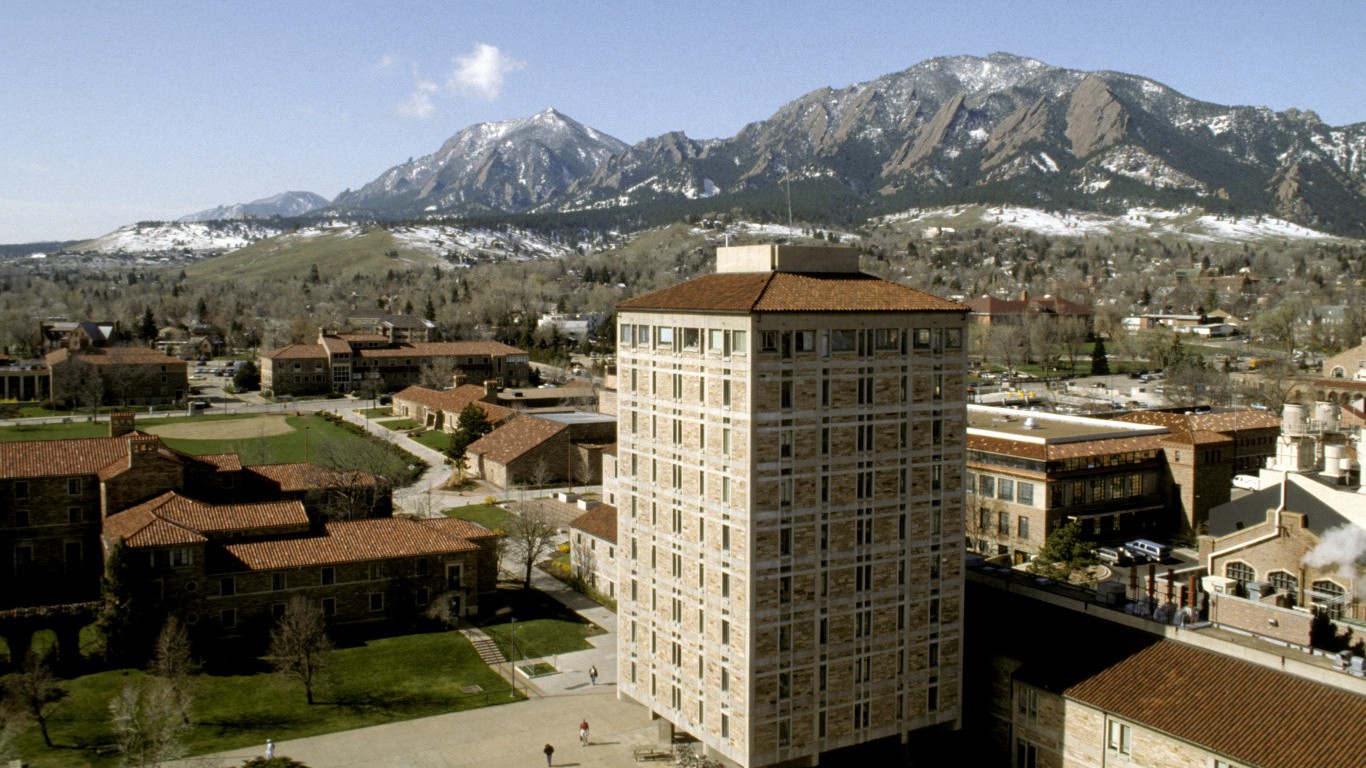
4. Boulder, Colorado
> College enrollment: 29.5%
> Adults with a bachelor’s degree: 73.0%
> No. of colleges and universities in surrounding county: 9
> Annual unemployment: 3.1%
> Bars per 100K: 15.8
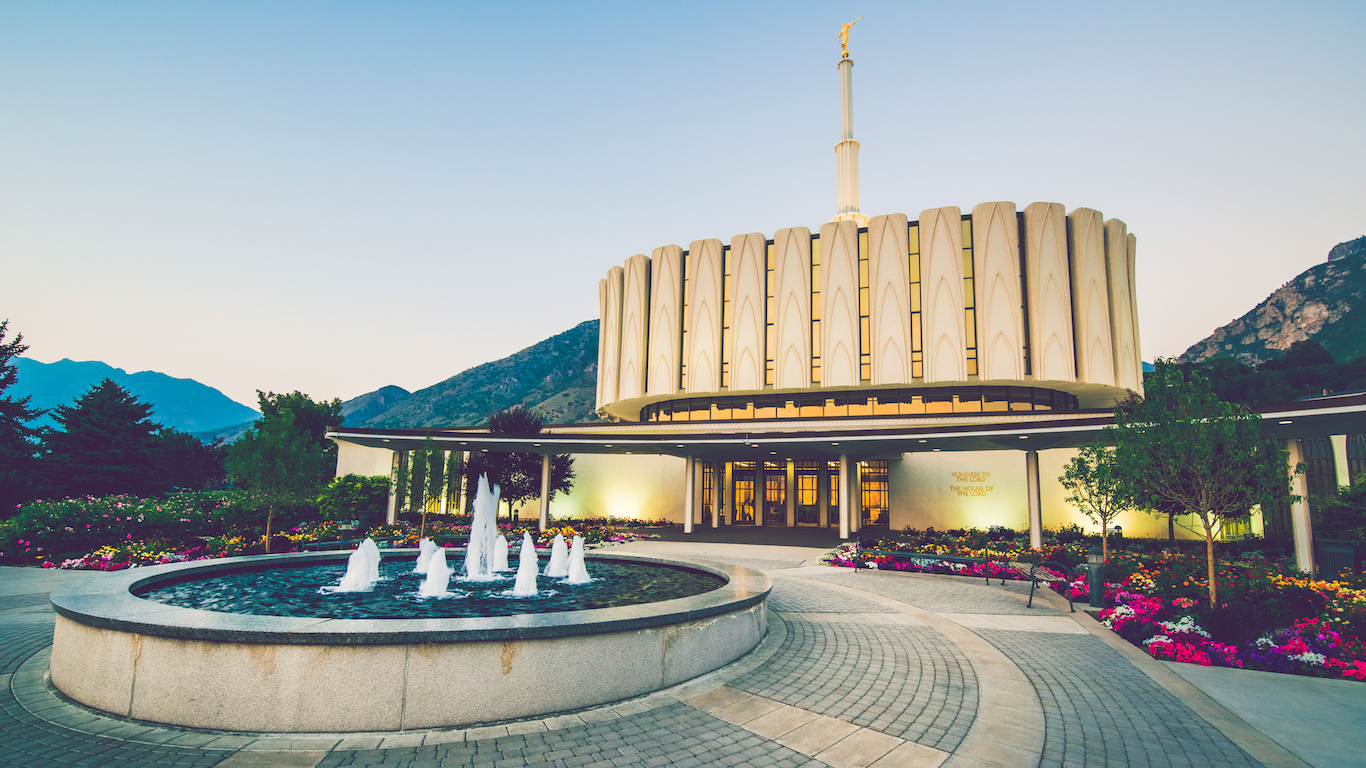
3. Provo, Utah
> College enrollment: 32.6%
> Adults with a bachelor’s degree: 43.3%
> No. of colleges and universities in surrounding county: 18
> Annual unemployment: 3.0%
> Bars per 100K: 1.7
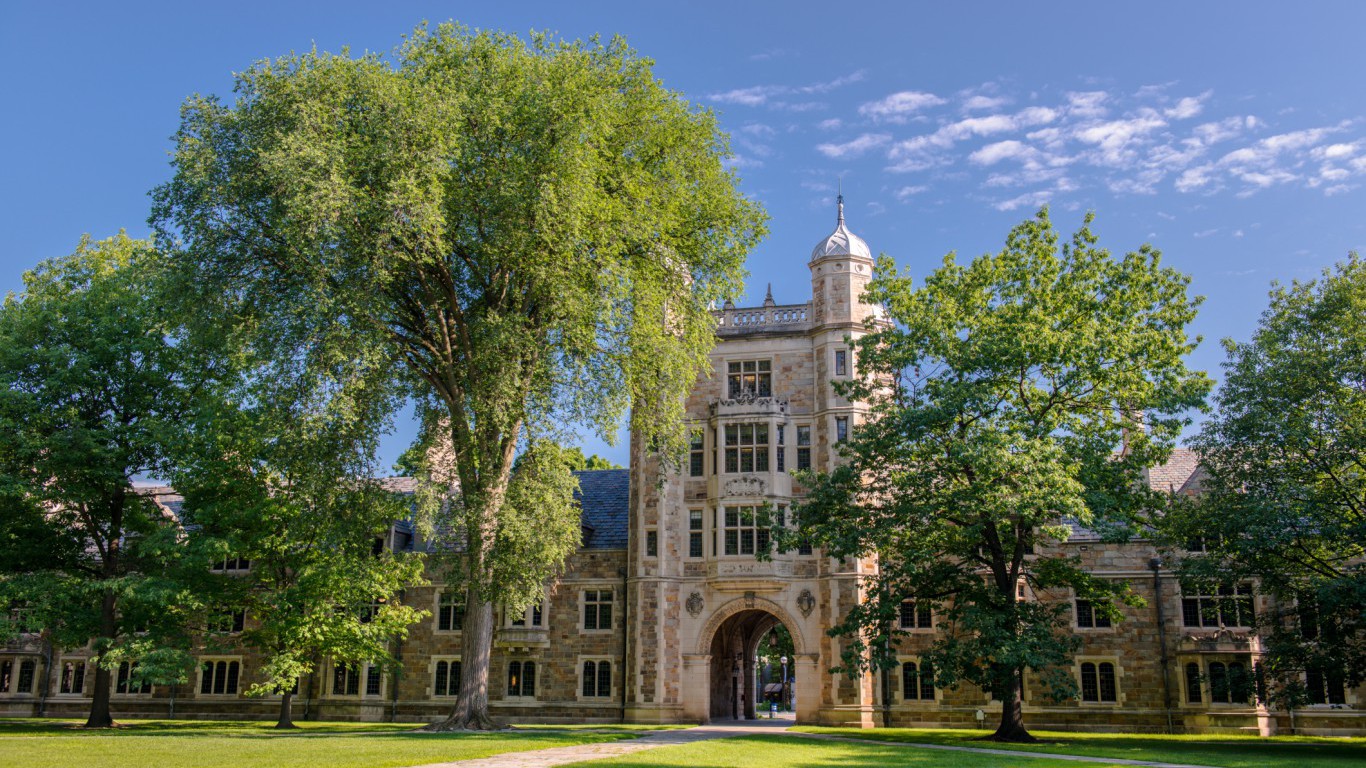
2. Ann Arbor, Michigan
> College enrollment: 34.8%
> Adults with a bachelor’s degree: 73.9%
> No. of colleges and universities in surrounding county: 8
> Annual unemployment: 2.9%
> Bars per 100K: 17.1
[in-text-ad-2]
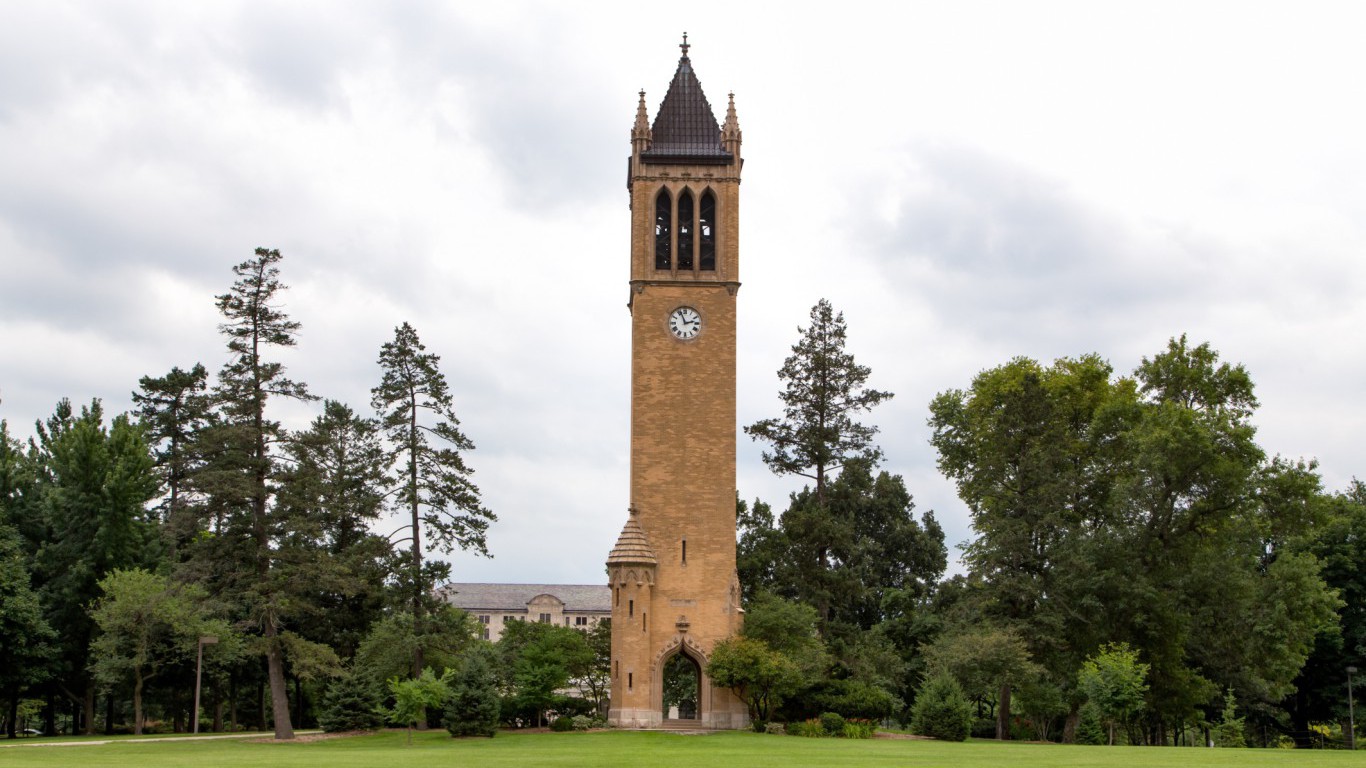
1. Ames, Iowa
> College enrollment: 44.3%
> Adults with a bachelor’s degree: 65.2%
> No. of colleges and universities in surrounding county: 2
> Annual unemployment: 2.2%
> Bars per 100K: 24.6
Detailed Findings and Methodology:
At least 12% of residents in all 25 of these cities are currently enrolled in a postsecondary institution. In 10 of the 25 cities, more than one in every five residents is a college student.
Some of the country’s largest and most productive research institutions dominate the economies of many of these cities. For example, in Middlesex County, which contains Cambridge, there are close to 50 colleges and universities that employ thousands of area workers.
Of the 25 cities on this list only two had unemployment rates that exceeded the national average rate of 5.3% in 2015.
Like Cambridge, the higher education institutions in Ann Arbor, Michigan contribute to a healthy economy. Less than 3% of the city’s labor force is unemployed, one of the lowest unemployment rates of all U.S. cities.
The city also has the fifth highest number of adults with at least a bachelor’s degree — nearly 74% of the population has a college degree. The percentage of adults with at least a bachelor’s degree is greater than the national rate of 30.6% in all but two of the 25 best college cities.
Like most of the best college towns, Ann Arbor also has an expansive choice of restaurants, bodegas, and cafes, as well as quite a few recreational centers. Of course, a college town would not be complete without bars. For every 100,000 residents in Ann Arbor there are roughly 17 in and around the city. In Lawrence, Kansas, there are over 34 bars per 100,000 people.
College students typically do not have much disposable income to spend on vehicles or other luxuries. The average cost of living in all but six of the 25 cities is lower than the national average. In a few of the cities there are some notable exceptions. The cost of housing in the Los Angeles, California, Boston, Massachusetts, Dallas, Texas, and Boulder, Colorado areas, for example, is substantially higher than across the nation.
All 25 of the top cities exceed the national average of the percentage of the community that commutes to college by walking.
To identify the best college towns in America, 24/7 Wall St., 24/7 Wall St. considered the roughly 550 cities that the U.S. Census Bureau reported as having populations of more than 65,000 residents in 2015. Based on our analysis of the nation’s best cities to live in (click here to see full methodology), we reviewed the 250 top cities. Of those areas, we identified the 25 cities with the highest postsecondary enrollment. The percentage of adults with at least a bachelor’s degree in each city came from the U.S. Census Bureau’s 2015 American Community Survey and are 5-year estimates. The number of college and universities in the surrounding county of each city came from the U.S. Department of Education. Annual unemployment was obtained from the Bureau of Labor Statistics. The number of bars per 100,000 city residents came from the U.S. Census Bureau.
Thank you for reading! Have some feedback for us?
Contact the 24/7 Wall St. editorial team.